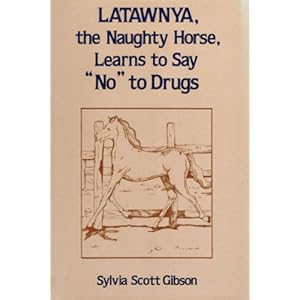I don't have the issue on hand right now but the answer was basically, "Whatever's the cheapest." At this point in my life, I'm 100% with that respondent. Though I wish I had the money, time, and you know, a horse to show at rated shows, over my college years I have only done a handful of local fun day shows. And I've had a lot of fun. Before college, I really hadn't shown much--just one full season that ended in a rather dramatic way that resulted in my parents not wanting to pay for shows any more. So when I had the opportunity to free lease a boarder's horse at Gentle Giants for a summer, I jumped on it. I was just excited to start showing again.
 |
| I know, I know. This just screams CHAIR SEAT!!! to me now but I love how happy we both look in this photo. |
He was an 8 year old TB gelding named Humphrey--the perfect name for a horse who, yes, was nervous, but tried really really hard to please. His owner allowed the rescue to use him as a lesson horse, but once he started tossing his head and scaring the beginners, the rescue director had me ride him to get him to settle down.
I have always loved Thoroughbreds for a very particular reason--when they spook, all you have to do is let them run away and then look at the scary monster from afar. Then when you walk them back toward it, they realize, "Oh. That monster was actually just a chair that has been there every day for the past three years. Whew! Let's work some more!" Thankfully Humphrey's nervousness only manifested itself in little skitters away from the object of terror rather than full-out bolting, so it wasn't really a big deal, and I kept our sessions fairly short at the beginning. His head-tossing didn't bother me, so I just let him shake it out until he realized that wasn't going to get him out of working, and it became less and less frequent. We also worked on moving forward with impulsion, rather than allowing his mind to wander. I found myself with a horse who always looked for the right answer. Once he did, I stopped the session.
 |
| Good boy Humphrey! |
I think this is what made his owner propose a free lease, with local show expenses paid. I was careful with Humphrey--our sessions were pretty short, and I tried hard not to fry his nervous little brain by asking too much. This is key to building good relationships with boarders, farm managers, and any other person with a horse that you want to continue riding. Treat their horse as if it was yours. I realize that in a world where many horse people mean well but have different opinions on every aspect of horse care and riding, that little piece of advice is almost meaningless. What I mean is to recognize any limitations the horse has and work with them constructively, rather than just riding the crap out of him just because you're starved for riding time. If you ride well, you'll always have someone who would be happy to let you ride their horse, especially with tools like the Chronicle of the Horse thread for Horseless Riders and Riderless Horses that Analise mentioned in a comment a few weeks ago.
And educate yourself--read magazines, blogs (see my blogroll for ideas), even Pony Club manuals. Not all of the advice you find will be sound, and not all of it will work for your horse so it helps to have a large arsenal of ideas for various training issues.
One of Humphrey's big problems (that I only began to make progress with near the end of the summer) was picking up the left canter lead. There was nothing physically wrong with him, and you would think that as a TB bred to race, he would have no problem doing this, but he never actually made it to the track and apparently is right-handed.
I tried all kinds of things with him that I found from a myriad of sources online--Yahoo Answers, Trocha's Training Tips, Chronicle of the Horse, all of the things that came up from the Google search "horse won't pick up left lead". What seemed to give us the most success was putting a pole on the ground coming out of a corner, then asking right there every single time. That seemed to help because it was a visual cue to me to collect him up a little bit before the "jump" and then ask while he was stretching his legs over the pole. I would also move the pole around the ring so he wouldn't automatically canter in the same spot, and added a lot of circles at the trot to build suppleness on that side. By the end of the summer, Humphrey got the left lead correct about half of the time...but even when I took away the poles, he also had the idea that poles=canter always. Oops...
With my current trainer I've really learned how to ask for the canter correctly because the horse I ride, Clyde, absolutely WILL NOT canter without being asked correctly. Perhaps I could have made faster progress with Humphrey now that I know the technically correct way to ask (I didn't have a great idea of how to correctly ask for a bend or that inside leg=bend and outside leg=gas), but who knows. What I do know is that Humphrey gave me a great summer of fun day shows, summertime rides, and the feeling of having my "own" horse that I was making great progress with.
Moral of the story: Hooray for free leases! And, be smart.


